Start-the-day rite
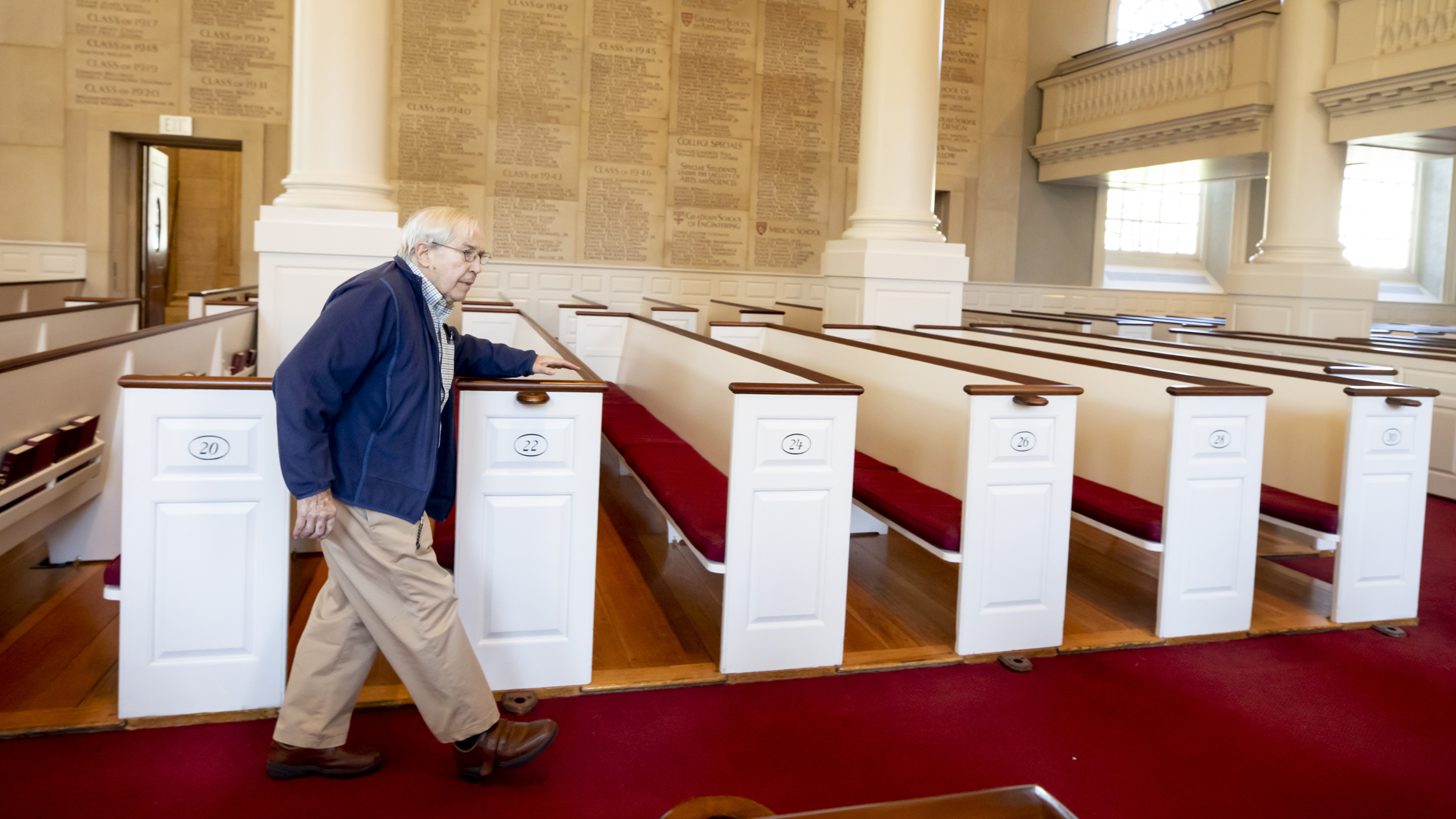
Photos by Rose Lincoln/Harvard Staff Photographer
From the holy to the wholly indulgent, daily rituals give our lives shape
To start the day right or wind down in peace, many of us rely on rituals, whether physical or spiritual. We’d say they could be mental, too, but for us it’s morning and we haven’t had our coffee yet. Ahem, Professor Engert.
A graceful beginning
Bob Hurlbut ’59 was 8 years old when he first came to the Memorial Church, for a service for his father, killed in World War II. Later, as a Harvard freshman, he began attending Morning Prayers, and the habit grew into a ritual that has lasted 69 years.
“It is a very calming and inspiring part of my day,” Hurlbut says. “It’s nice to hear speakers of all persuasions who keep me informed about the College, and the music is incomparable.”
The prayers are a ritual not only for Hurlbut but also for Memorial Church itself, where they have been heard every morning since 1636. The prayers are said between 8:30 and 8:45, “identical in its form,” he says. Hurlbut finds comfort in this, as do a handful of regulars. He is now one of the few, however, who will see his father’s name on a wall as he leaves the church.
Midday at the museum
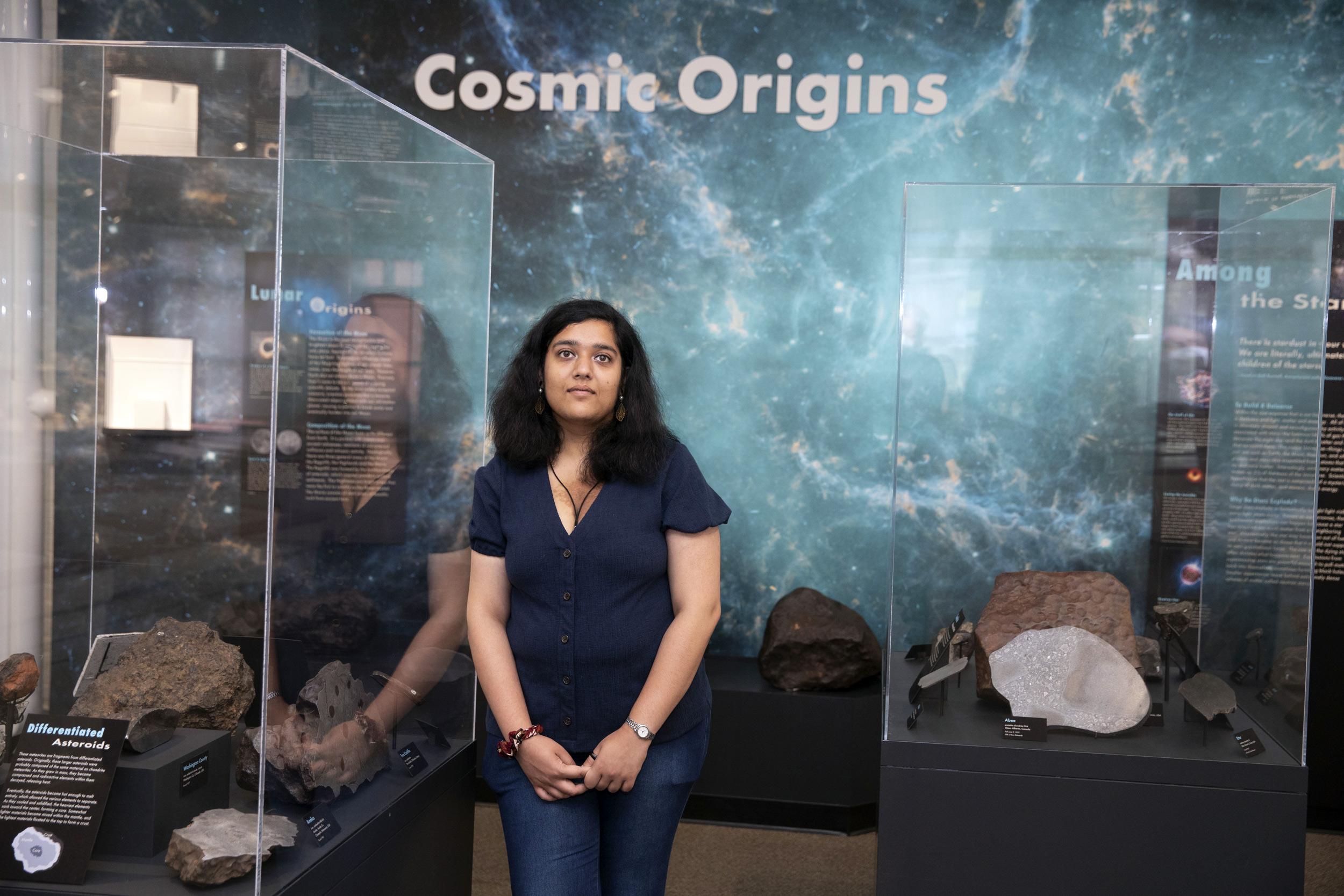
Kris Snibbe/Harvard Staff Photographer
Misha Gupta, a Ph.D. candidate in the Department of Organismic and Evolutionary Biology at the Graduate School of Arts and Sciences, loves her work, during and outside working hours. Every day, she takes her break at Harvard’s Museum of Natural History, strolling past the 42-foot-long kronosaurus to visit her favorite, the skull of the triceratops.
“I find it immensely calming to be surrounded by so many people interested in natural history. I often just observe people interacting with the exhibits, and the joy it brings to them,” she says. “I also love discovering new things in the museum. I have spent so much time there and I still find new things every time!”
Her ritual started by chance, a result of trying to keep out of the cold while getting to class by cutting through interconnected buildings. She passed through HMNH on the way to her classroom, and before long, she was hooked.
Gupta says her visits help her focus on her Ph.D. work. “I get to remember why I love science and natural history outside of my lab space. I am excited to see what else I can discover.”
The bolt of the evening
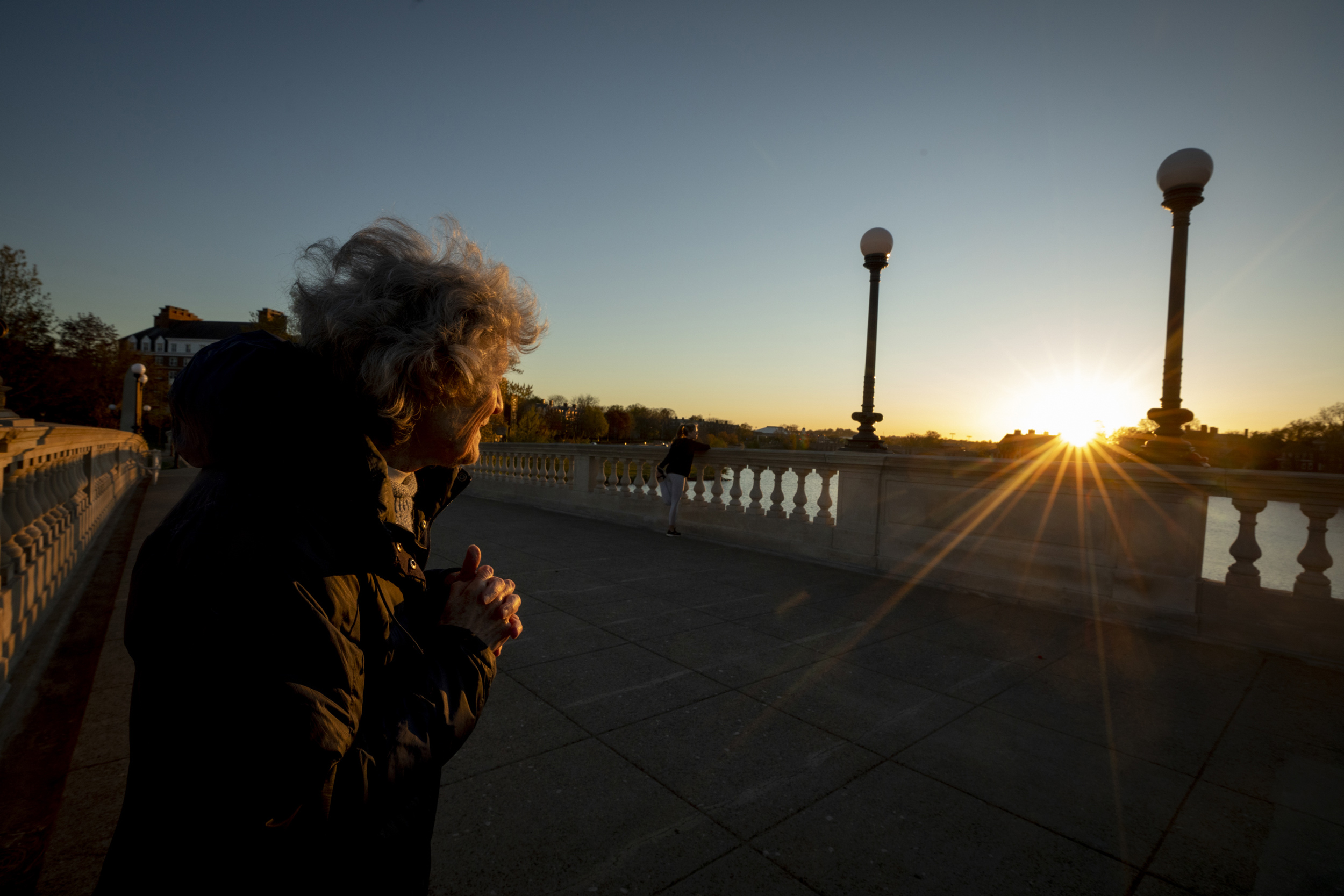
Professor Emerita Eleanor Duckworth walks quickly, making sure to reach the Weeks Footbridge before sunset. Once there, she pauses, then turns in different directions to take in the full color of the Eastern sky or see where the moon is hanging. This is her evening ritual. Earlier in the week she had risen at 4 a.m. to “see the planets.” The following week she planned to stay up until midnight to see the total eclipse of the moon.
Duckworth began her sunset ritual about three years ago, after hearing a dystopian plot about people forced to live underground 364 days a year, but released just one evening to watch the darkening sky. She decided not to take that daily display for granted. And though she may miss the occasional evening, as she did for an invitation to an evening concert, “I’ll only miss the sunset for beauty!”
“I come every night to watch the sunset. I come even when there’s no sun.”
Eleanor Duckworth
Duckworth taught at the Harvard Graduate School of Education for 31 years. She says proudly, “I have no children of my own but three of my students named their daughters after me.” Each year, she assigned her students to watch the moon. The takeaway lesson was, for one student, frustrating at first. But soon she came to embrace (and teach) ambiguity in her own classroom.
“No matter how well I think I know something, further study will reveal new possibilities … Students learn tenacity and sensitivity … and ultimately, they learn to not only manage but also embrace their frustration over not finding easy answers.”
Espress yourself
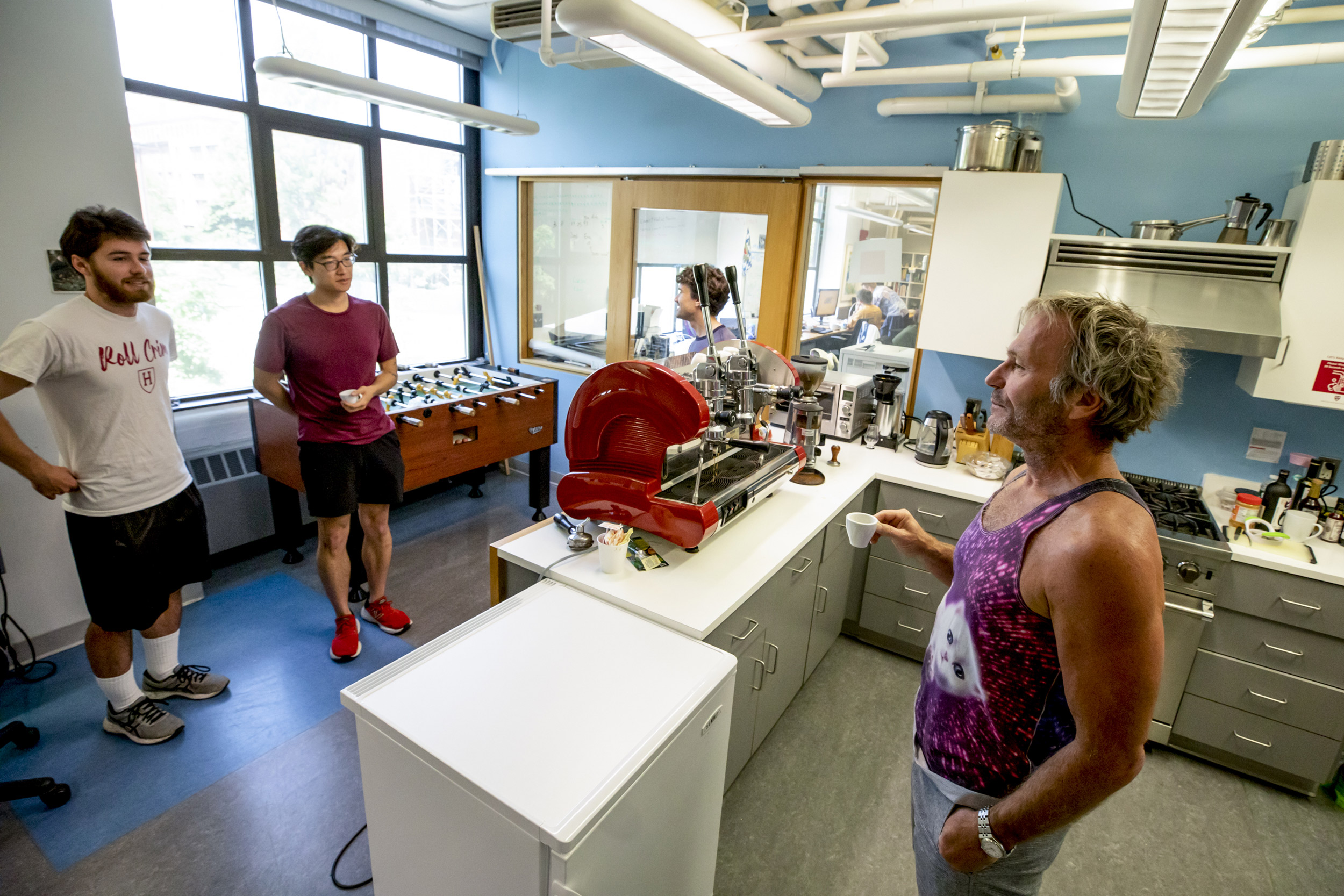
Florian Engert bought the beautiful red Italian espresso machine near his office in the biolabs along with the Foosball table when he made tenure several years ago. Thus began a daily ritual of drinking espressos around the gleaming machine. A large drawer nearby is filled with pounds of George Howell coffee. “Intense battles resulting in political factions over what type of coffee to buy have ensued,” says Engert.
On a recent weekday morning, several postdocs, Ph.D. students, and undergrads filter into the kitchen, many pulling then sipping espresso. The Foosball table is largely unused because the competitions were “loud and disruptive.”
During the pandemic a different ritual was to meet on Zoom at 5 p.m. each day and hold a plank. Alex Chen, a Ph.D. student, is considered the champion, having planked continuously for 15 minutes on one call. “I can barely do one minute, now,” quips Chen. Another department ritual, currently scaled back to one day a week, is running the stadium steps. During the pandemic the stadium was locked, so the runners scaled the Widener Library steps instead.
While some department rituals have waned, the daily espresso breaks abide. Engert says he starts each day at Simon’s Coffee on Mass. Ave. with his wife and two children. He estimates that in all, he drinks five espressos a day. “It’s not about the caffeine,” he says, “it’s about the ritual.”
A sport for the season
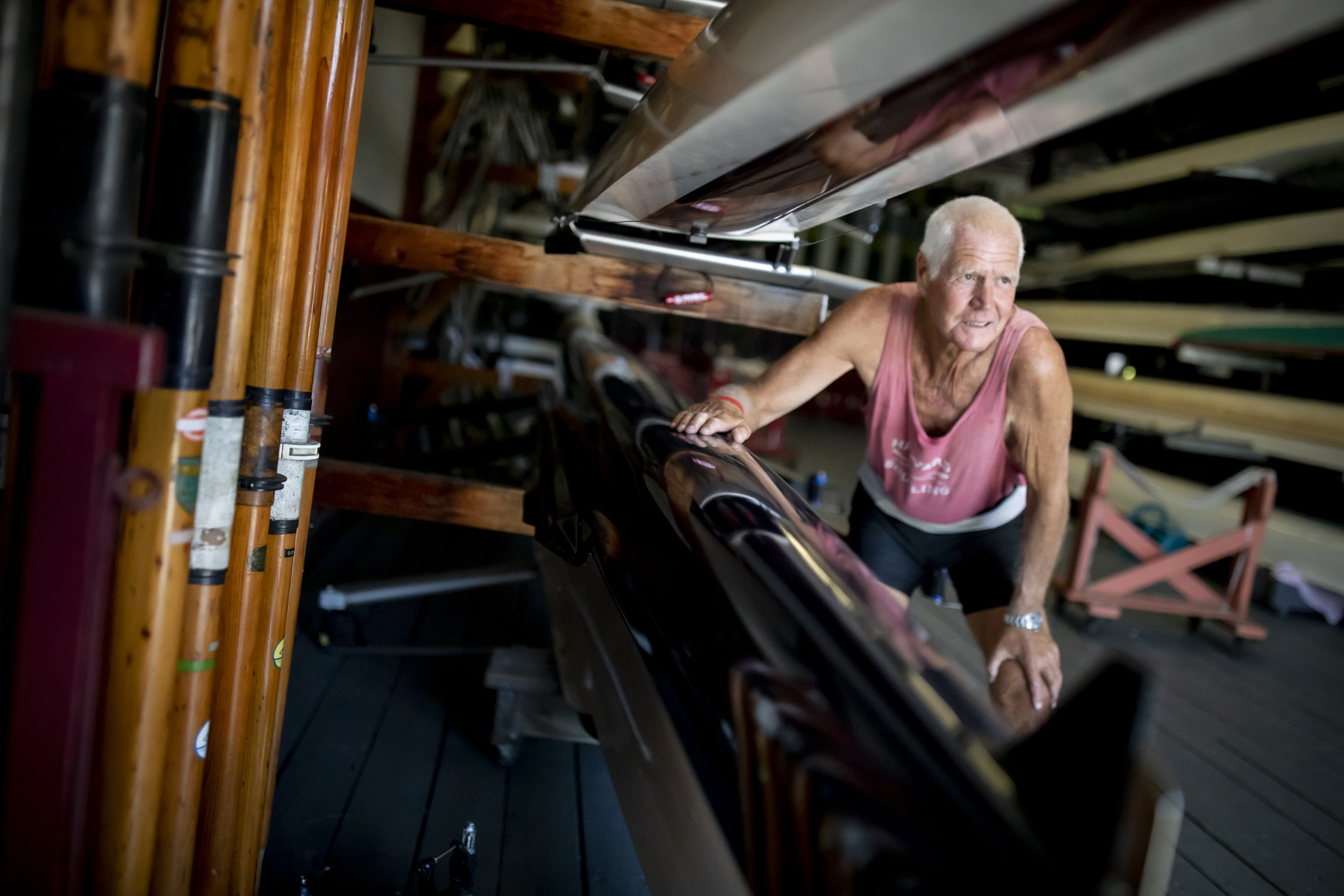
A love of rowing came naturally to Kevin McGrath: “Athletics as we know it today developed out of the world of ancient heroes,” says the Classics teacher and associate in the Department of South Asian Studies. Indeed, the ancient practice helped the Greeks explore the world as they knew it and kept them fit — in body and mind.
“Rowing is not simply a physical sport, it’s a mental sport. It’s like fencing, it’s very precise,” McGrath says of the practice he took up 25 years ago at the urging of Dan Boyne, Harvard’s director of recreational sculling.
“It’s a profound experience, also, being on the water, which is constantly changing,” McGrath says. “And all the weird things on the banks of the river which are not perceptible to people on the banks. Lovers like to meet on the riverbanks, which you can see from the river, but you don’t see from the shore. There’s something transcendental out there. It’s a different world physically, emotionally, and mentally, and it’s a highly attuned world if you’re watching the water, the waves, being aware of the wind, of the season, of the temperature.”
Before the pandemic struck, McGrath was one of a group of 15 rowers who would see each other every morning at Weld Boathouse. They’d joke that if the boathouse seceded from Harvard, they’d have enough faculty to establish their own liberal arts college. With Weld now under construction, the group has been whittled down to just two. McGrath said he misses the friendships, conversations, and competitions. “If you’re rowing with friends for decades and talking with them, that’s a profound accumulation of friendship.”
McGrath credits his rest-of-the-day focus to rowing. He doesn’t sleep much and rises at 3:30 a.m., a habit his father passed down. He says daily river rows gives him mental energy to carry on at his pace. “Rowing out of Weld-Newell is one of the jewels of my life.”




